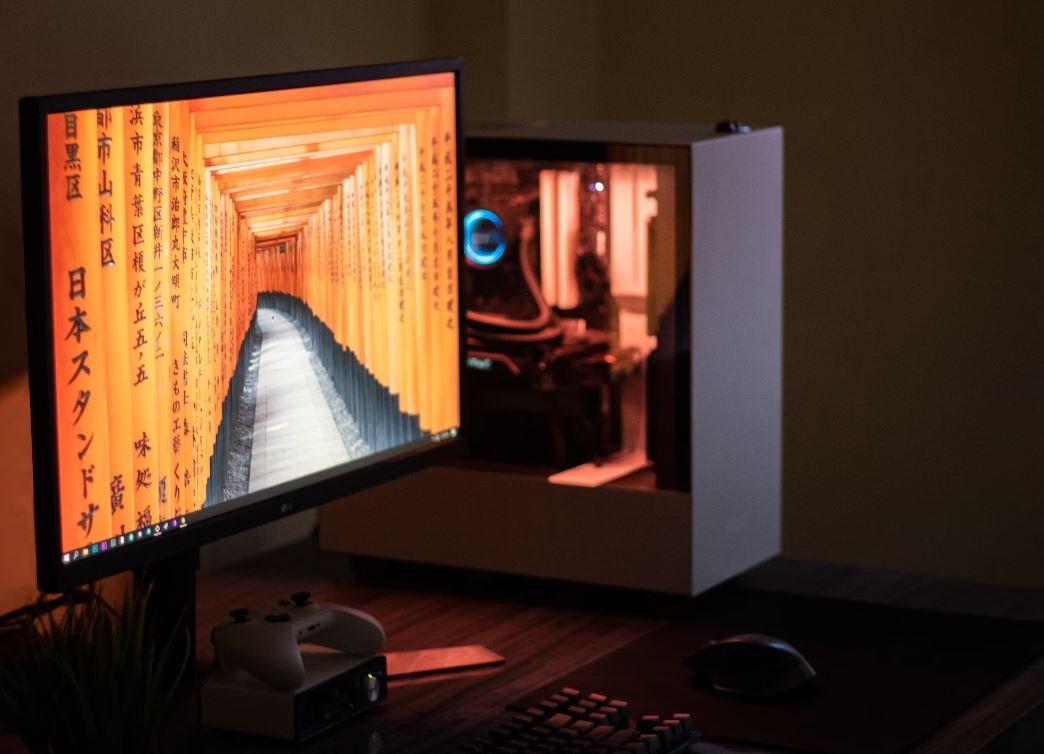Who Are SpaceX Competitors?
SpaceX, founded by Elon Musk in 2002, is a private aerospace manufacturer and space transportation company headquartered in Hawthorne, California. It has revolutionized the space industry with its innovative rocket designs and reusability capabilities. Although SpaceX has achieved remarkable success, it faces competition from various other players in the space industry. Let’s take a closer look at some of SpaceX’s key competitors.
Key Takeaways
- SpaceX faces competition from several companies in the space industry.
- Competitors include Blue Origin, United Launch Alliance, and Arianespace among others.
- Each competitor brings unique capabilities and technologies to the market.
- Competition in the space industry benefits innovation and drives progress.
Blue Origin
Blue Origin is another prominent player in the space industry, founded by Jeff Bezos in 2000. It aims to make space travel more accessible and affordable through its reusable rocket system, New Shepard, and upcoming New Glenn rocket. Blue Origin has its sights set on both suborbital and orbital space tourism, as well as satellite launches.
Blue Origin‘s focus on affordable space travel opens doors for new opportunities in the commercial space industry.
United Launch Alliance (ULA)
United Launch Alliance, a joint venture between Boeing and Lockheed Martin, has been a strong competitor in the space industry for several years. It provides reliable access to space with its Atlas V and Delta IV rockets. ULA has a successful track record in launching various satellites and payloads, including those for the U.S. military.
ULA’s partnership between two aerospace giants ensures expertise and resources to deliver reliable space launch services.
| Company | Launch Vehicle | First Launch |
|---|---|---|
| SpaceX | Falcon 9, Falcon Heavy, Starship | 2006 |
| Blue Origin | New Shepard, New Glenn | 2015 |
| United Launch Alliance | Atlas V, Delta IV | 2002 |
Arianespace
Arianespace is a European launch service provider that operates the Ariane family of launch vehicles. It has a successful launch record and offers a reliable option for commercial satellite launches. Arianespace plays a key role in Europe’s access to space and serves a global customer base.
Arianespace’s contributions to the European space industry ensure a strong presence in the global launch market.
Competition Driving Innovation
Competition in the space industry is fierce, driving companies to innovate and push the boundaries of technology. As SpaceX continues to pioneer reusable rockets and develop ambitious projects like Starship, its competitors are also investing heavily in advancing their own capabilities. This healthy competition benefits the industry as a whole by spurring innovation, lowering costs, and enabling new developments.
With each company striving to outdo the other, the future of space exploration and commercial space travel looks increasingly fascinating.
| Launch Provider | Success Rate | Launches in 2021 |
|---|---|---|
| SpaceX | 97% | 28 |
| Blue Origin | 100% | 2 |
| United Launch Alliance | 100% | 6 |
| Arianespace | 97% | 10 |
Conclusion
SpaceX faces competition from various companies in the space industry, each bringing unique capabilities and technologies to the market. Blue Origin, United Launch Alliance, and Arianespace are just a few of the prominent competitors challenging SpaceX’s dominance. As these companies continue to innovate and push the boundaries of space exploration, the industry as a whole benefits from increased competition, ultimately driving progress and advancements.
The race to conquer space is on, and it is an exciting time for both space enthusiasts and the future of humanity beyond Earth.

Common Misconceptions
1. There Are No Competitors for SpaceX
One common misconception is that SpaceX has no competitors in the space industry. While it is true that SpaceX has made significant progress in the field with its groundbreaking technology and ambitious goals, there are other companies that also pose competition in various ways.
- Blue Origin: Founded by Jeff Bezos, Blue Origin is focused on developing the technology required for human space exploration and colonization. They have successfully launched and landed their reusable New Shepard rocket, which competes directly with SpaceX’s Falcon 9.
- United Launch Alliance (ULA): ULA is a joint venture between Boeing and Lockheed Martin, and has a long history of providing reliable launch services for various customers including NASA and the US military. While ULA’s technology may differ from SpaceX’s, they are a formidable competitor in the commercial space launch market.
- Arianespace: Based in Europe, Arianespace is a major player in the global launch services market. They operate the Ariane family of rockets and have a successful track record with commercial launches. Although their focus is primarily on the European market, they do compete with SpaceX for global commercial satellite launches.
2. SpaceX’s Competitors are Not as Innovative
Another misconception is that SpaceX’s competitors lack innovation and are not on par with SpaceX’s achievements. While SpaceX has certainly pushed boundaries with technologies like reusable rockets and ambitious goals like colonizing Mars, it is important to recognize the strides made by other companies as well.
- Blue Origin: Like SpaceX, Blue Origin is actively developing reusable rocket technology and has successfully demonstrated it with their New Shepard rocket. They are also working on the New Glenn, a more powerful reusable rocket that will be capable of launching larger payloads into space.
- Boeing: Boeing, through their Space Launch System (SLS) program, is working on developing the most powerful rocket ever built to support NASA’s deep space exploration missions. This represents a significant step forward in space exploration capabilities.
- Virgin Galactic: Although primarily focused on space tourism, Virgin Galactic also has plans to develop a small satellite launch capability with their LauncherOne system. This would enable them to compete directly with SpaceX in the growing market for small satellite launches.
3. SpaceX is the Sole Leader in the Space Industry
There is a misconception that SpaceX is the sole leader and dominant force in the space industry. While SpaceX has certainly garnered significant attention and achieved remarkable milestones, it is important to acknowledge the contributions and capabilities of other players in the field.
- Boeing: With a long history in aerospace and strong ties with NASA, Boeing is a major player in the space industry. They are involved in several space-related projects, including building the CST-100 Starliner spacecraft to transport astronauts to the International Space Station.
- Lockheed Martin: Known for their expertise in building advanced military systems, Lockheed Martin is also active in the space industry. They are a major contributor to NASA’s Orion spacecraft, which is being developed to carry astronauts beyond low Earth orbit.
- Northrop Grumman: Northrop Grumman, through their subsidiary Northrop Grumman Innovation Systems, has a significant presence in the space industry. They are involved in various programs, including manufacturing the Cygnus spacecraft which delivers supplies to the International Space Station.
Conclusion
Despite common misconceptions, SpaceX does have competitors in the space industry. Companies like Blue Origin, United Launch Alliance, and Arianespace provide stiff competition in various market segments. It is important to recognize that these competitors also possess innovative technologies and capabilities. Furthermore, the space industry is not solely dominated by SpaceX, as other established and reputable companies like Boeing, Lockheed Martin, and Northrop Grumman play significant roles in shaping the future of space exploration.

SpaceX
Founded in 2002 by Elon Musk, SpaceX is an American aerospace manufacturer and space transportation company. They have gained substantial success in recent years as a global leader in the space industry, pioneering the development of reusable rockets and aiming to make space travel more accessible.
Blue Origin
Blue Origin, founded in 2000 by Jeff Bezos, is an American aerospace manufacturer and spaceflight company. They focus on the development of reusable rocket technology and are committed to making space exploration more accessible to a wider audience.
Rocket Lab
Rocket Lab, established in 2006, is a space technology company headquartered in New Zealand. They specialize in the design and launch of lightweight, cost-effective rockets for small satellite payloads, enabling more frequent access to space for scientific and commercial purposes.
Virgin Galactic
Founded in 2004 by Richard Branson, Virgin Galactic is a space tourism company based in the United States. They aim to provide suborbital spaceflights to individuals seeking a unique and exhilarating experience beyond Earth’s atmosphere.
Boeing
Boeing, established in 1916, is a major American aerospace company. They have a strong presence in the space industry, providing launch services, satellites, and spacecraft to both government and commercial customers.
Lockheed Martin
Lockheed Martin, founded in 1995, is an American defense, aerospace, and technology company. They play a prominent role in the space sector by providing various services including satellite systems, spacecraft, and advanced technologies for exploration missions.
Orbital Sciences Corporation
Orbital Sciences Corporation, now part of Northrop Grumman Innovation Systems, was a leading company in the space industry. They specialized in the design, development, and launch of rockets and spacecraft, contributing to various space missions.
Arianespace
Arianespace is a French company founded in 1980 that provides commercial launch services. They operate the Ariane family of rockets, consistently launching a significant number of satellites into space for various government and commercial entities.
China Aerospace Science and Technology Corporation (CASC)
CASC is a Chinese state-owned company founded in 1999. It is the main contractor for China’s space program and plays a vital role in the country’s advancements in space exploration, satellite development, and launch services.
Indian Space Research Organisation (ISRO)
ISRO is the space agency of the Indian government, founded in 1969. They have achieved notable accomplishments in space research, satellite operations, and launch services, contributing to India’s emergence as a major player in the space industry.
In a competitive and rapidly evolving space industry, companies like SpaceX, Blue Origin, Rocket Lab, and Virgin Galactic are leading the way with innovations in space exploration and travel. Established giants like Boeing and Lockheed Martin continue to play significant roles in the industry, pushing the boundaries of technology and pushing the limits of human spaceflight. Orbital Sciences Corporation, Arianespace, CASC, and ISRO also bring their unique contributions to the table, further diversifying the global space market. As space becomes more accessible and commercialized, the competition among these companies intensifies, driving progress and opening up new possibilities for the future of space exploration.
Who Are SpaceX Competitors? – Frequently Asked Questions
Question 1: What are some of the major competitors of SpaceX?
SpaceX faces competition from some of the major players in the space industry, including Blue Origin, United Launch Alliance (ULA), and Arianespace.
Question 2: How does Blue Origin compare to SpaceX?
Blue Origin, founded by Jeff Bezos, aims to develop reusable rockets and space vehicles similar to SpaceX. However, Blue Origin has been more focused on suborbital space tourism and plans for lunar exploration.
Question 3: What is United Launch Alliance (ULA)?
United Launch Alliance is a joint venture between major aerospace giants Boeing and Lockheed Martin. ULA offers a range of launch services and has been a prominent competitor to SpaceX in the commercial and government space launch industry.
Question 4: How does ULA differ from SpaceX?
While SpaceX emphasizes reusable rockets and cost-effective launches, ULA has traditionally relied on expendable rocket systems. However, ULA has also started working on reusable rocket technology to stay competitive.
Question 5: Who is Arianespace?
Arianespace is a multinational company that specializes in launching satellites into space using the Ariane rocket family. They have been an established player in the commercial launch market and pose as a competitor to SpaceX in the European market.
Question 6: Are there any other notable competitors of SpaceX?
In addition to Blue Origin, ULA, and Arianespace, other notable competitors of SpaceX include Rocket Lab, Northrop Grumman Corporation, and Boeing’s Space Launch System (SLS) program.
Question 7: What is Rocket Lab known for?
Rocket Lab is a private American aerospace manufacturer that focuses on small satellite launches. They have developed the Electron rocket, which caters to the growing demand for dedicated small satellite launches.
Question 8: How does Northrop Grumman Corporation compete with SpaceX?
Northrop Grumman Corporation is involved in space technology and defense, offering launch services through their Antares rocket system. They are known for cargo resupply missions to the International Space Station (ISS) under NASA’s Commercial Resupply Services (CRS) program.
Question 9: What is Boeing’s Space Launch System (SLS) program?
Boeing’s Space Launch System program is NASA’s initiative to develop the most powerful rocket ever built, aiming to enable deep space exploration missions, including potential crewed missions to Mars. While primarily a government project, SpaceX competes with SLS in certain aspects.
Question 10: How does SpaceX maintain its competitive edge in the industry?
SpaceX maintains its competitive edge by actively pursuing reusability, which significantly reduces launch costs. Additionally, they focus on technological innovation, successfully capturing contracts from both government and commercial customers and pushing the boundaries of space exploration.




